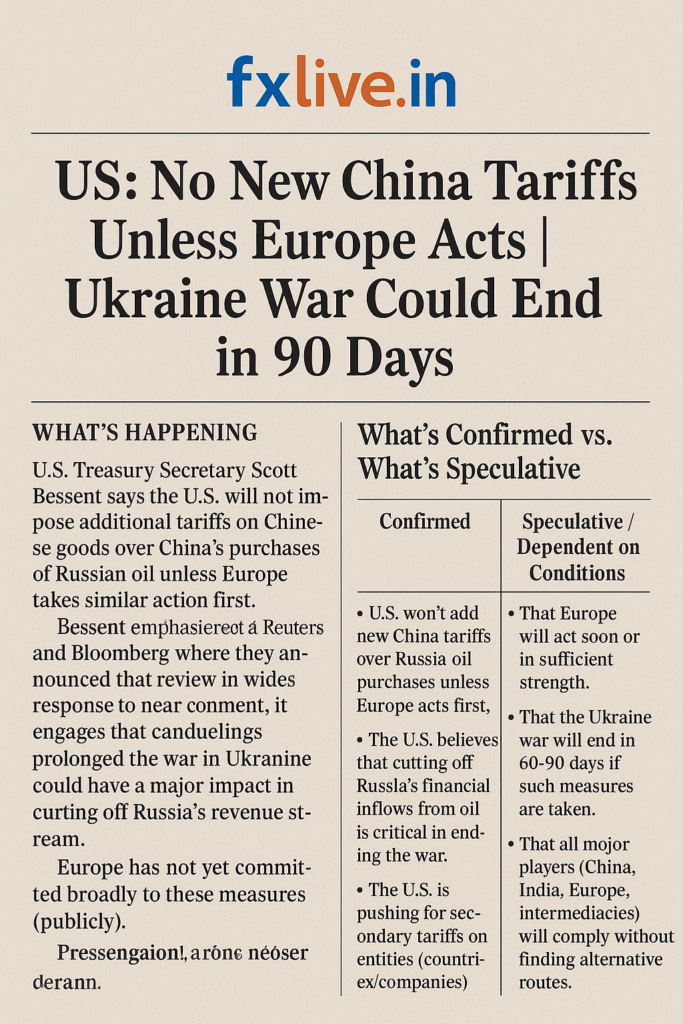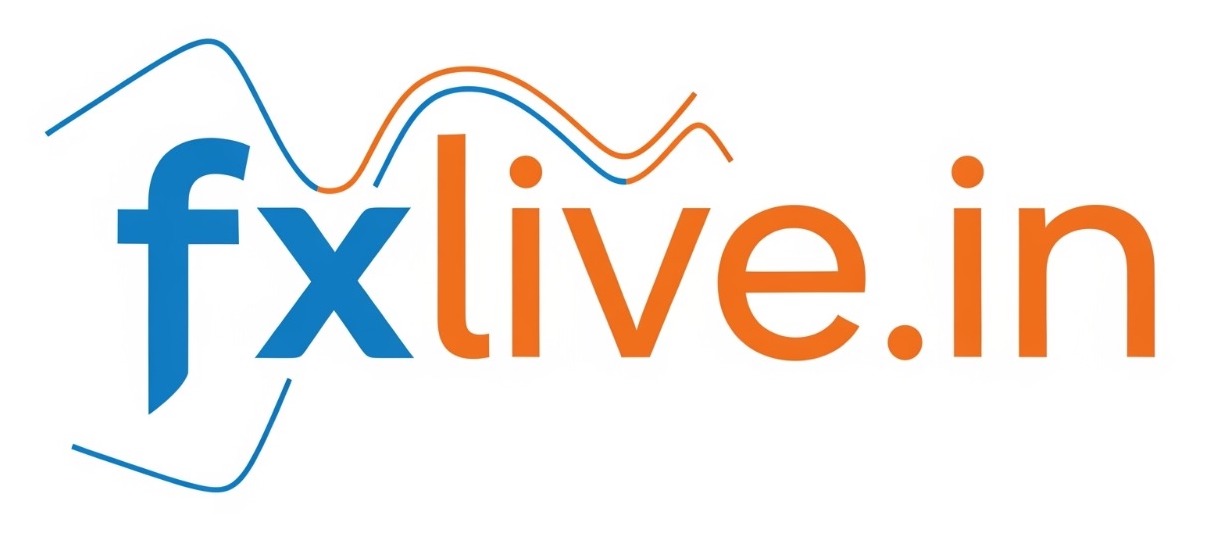Jai Siya Ram
What’s Happening
On China Tariffs & Europe
- U.S. Treasury Secretary Scott Bessent has stated that the U.S. will not impose additional tariffs on Chinese goods over China’s purchases of Russian oil unless Europe takes similar action first.
- In his interviews with Reuters and Bloomberg, Bessent emphasized that Europe should shoulder greater responsibility in reducing Russia’s oil revenues, which he describes as a major factor prolonging the war in Ukraine.
- He specifically criticized European countries that buy oil refined in India from discounted Russian crude. He argues that “strong European secondary tariffs” on such dealings could have a major impact in cutting off Russia’s revenue stream.
On Ukraine War Ending in 90 Days
- Bessent claimed that if Europe enacts strong tariffs (esp. secondary sanctions/tariffs) on Russian oil transactions — particularly for oil being refined in India or transacted via Chinese entities — then the war in Ukraine could end in 60 to 90 days. The logic is that cutting off Russia’s oil income (a key source of funding) would force it into negotiations or reduce its ability to sustain the war.
- The timeframe (60-90 days) is presented as a hypothesis or vision — not a guaranteed outcome. It depends heavily on coordinated international action, Europe’s willingness to impose and enforce strong secondary tariffs, and closure of loopholes for Russia’s oil revenue.
Strategic & Geopolitical Implications
- Leveraging Trade for War Pressure: This reflects a strategy where trade policy, tariffs and sanctions are being used as tools not just for economic pressure, but as levers to affect the course of conflict. If effective, this could shorten the war or force Russia’s hand.
- European Responsibility & Risk: Europe is in a difficult spot. Some of its economies rely, directly or indirectly, on Russian oil or refined products. Imposing strong secondary tariffs could hurt European consumers, industries, and supply chains. The U.S. is signaling that Europe must choose between short-term costs and long-term strategic/security goals.
- China & India’s Role: Because they are large importers or raffiners of Russian oil, how they respond (or don’t) will matter a lot. If they maintain current trade, then efforts to cut off Russian funding will be less impactful.
What to Watch
- European Governments’ Responses — Do key countries like Germany, France, Italy, etc., announce new tariffs or secondary sanctions? How strong are they?
- Legal and Trade Challenges — Will imposing secondary tariffs provoke WTO or trade treaty disputes? Will there be domestic opposition in Europe or Asia to sanctions/tariffs?
- Russia’s Financial Resilience — How quickly does cutting off oil revenue affect Russia’s war effort? Can Russia find alternate buyers, or use alternate routes/refineries?
- Ukraine’s Terms and Willingness — Even if revenue drops, will Ukraine accept a negotiated settlement? What would be the terms, and how much territory/security guarantees would be part of any peace deal?
- Monitoring & Enforcement — Sanctions/tariffs are only effective if leaks/loopholes are closed. Verifying trade flows, refining operations, intermediaries, shipping routes etc. will be critical.
- Timeline Tracking — If Europe does act, then 60-90 day clock begins in earnest. Analysts will be watching for signs of Russia seeking ceasefire, negotiating, or reducing combat operations.


